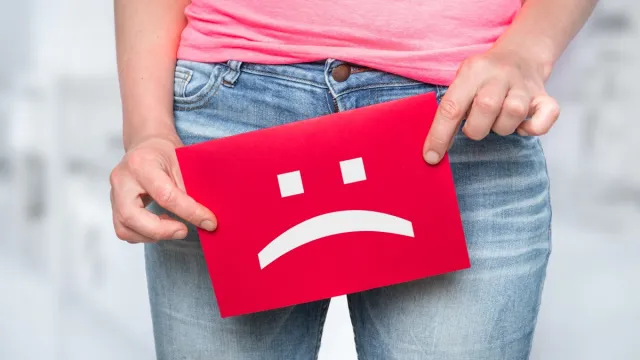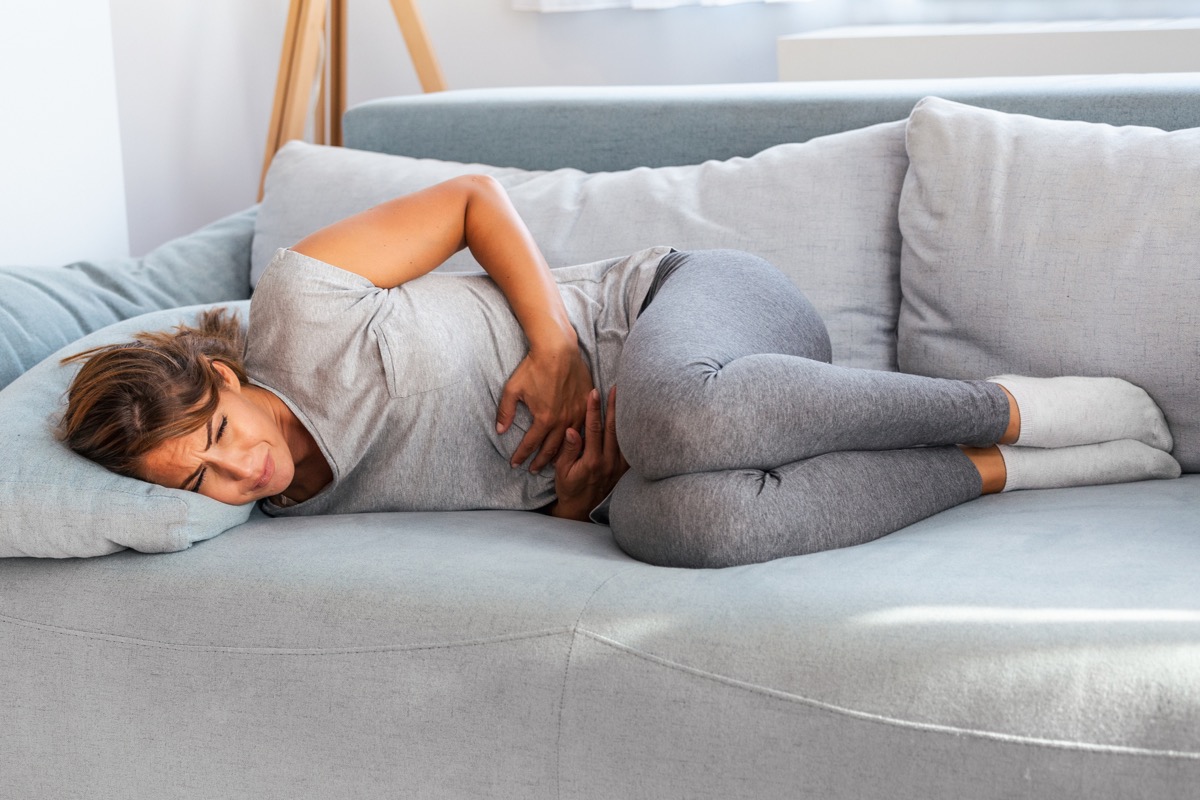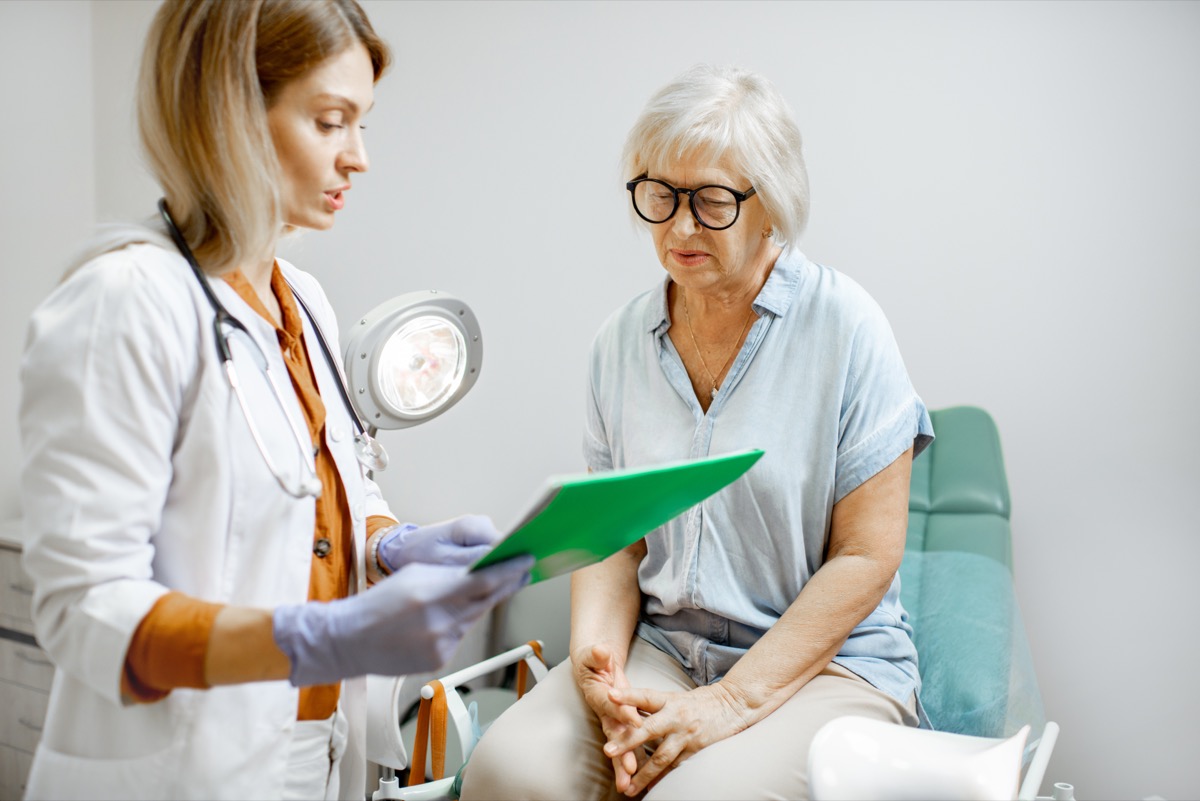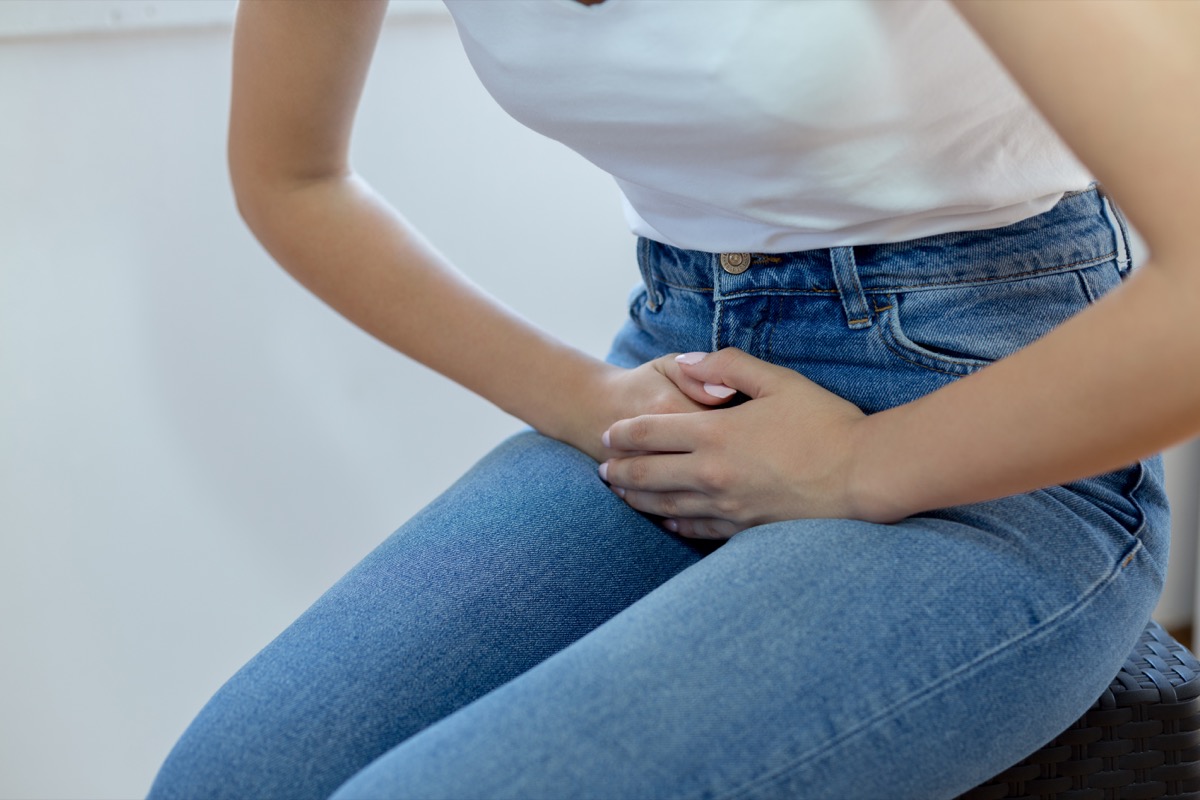What Happens to Your Body When You Hold Your Pee, According to Doctors

It happens to everyone sometimes: You need to pee, but you either don’t have the time to get up and go, or there’s no bathroom nearby. When this happens, it can not only be uncomfortable, it can also cause urological problems—some of which can persist long term.
But what, you may be wondering, happens to your body when you hold your pee for too long or too often? We checked in with urology experts to find out how this seemingly innocuous habit can wreak havoc on your health. Read on to learn what happens to your body when you hold your pee, and why experts say you should go at least every two to three hours.
READ THIS NEXT: 6 Things Your Kidneys Wish You’d Stop Doing, According to Experts.
You may be more likely to get a urinary tract infection.

One of the greatest risks of holding your pee for too long or too often is developing an increased risk of urinary tract infections (UTIs). “When urine is retained in the bladder, it creates a breeding ground for bacteria to grow and cause infection. When urine is not released regularly, these bacteria may travel up into the urethra and kidneys, leading to UTIs,” explains Martina Ambardjieva, MD, PhD, a urology resident and in-house medical expert for bedbible.com.
UTIs will typically require antibiotic treatment, so you should always talk to your doctor at the first signs of infection. These can include a strong urge to urinate that doesn’t go away, a burning sensation when you urinate, frequent urination, passing small amounts of urine, cloudy or discolored urine, and pelvic pain. Failing to treat a UTI can lead to more painful and serious conditions, such as kidney infection.
READ THIS NEXT: If This Happens to You in the Bathroom, Get Checked for Heart Failure.
You may weaken the muscles of your bladder.

According to Sonia Bahlani, MD, a pelvic pain specialist located in New York City, holding your urine for too long can cause contraction of the pelvic floor muscles. “When this happens, it can lead to weakness of the muscle surrounding the bladder and if done over long periods of time can lead to things like pain or incontinence,” she tells Best Life.
Ambardjieva explains that in particular, this occurs when the detrusor muscle in the bladder contracts and squeezes against a closed urethral sphincter. “Over time, this sustained contraction of the muscle can cause it to become weak and unable to properly contract or relax when needed. This results in an inability to control or completely empty out urine from the bladder during urination,” she says.
For more health news sent directly to your inbox, sign up for our daily newsletter.
You may be more likely to get bladder stones.

Ambardjieva points out that another possible consequence of holding your pee for too long is an increased likelihood of bladder stones. Formed inside the bladder when it doesn’t empty fully, these are hard lumps of minerals that can cause abdominal pain, pain while urinating, blood in the urine, and other symptoms.
“Urine is produced by your kidneys. It’s made up of water mixed with waste products that the kidneys remove from your blood,” explains the U.K.’s National Health Services (NHS). “One of the waste products is urea, which is made up of nitrogen and carbon. If any urine remains in your bladder, the chemicals in urea will stick together and form crystals. Over time, the crystals will harden and form bladder stones,” their experts write.
In some cases, this can be caused by an underlying condition which stops the bladder from emptying fully. These may include benign prostatic hyperplasia (BPH) and neurogenic bladder disease, among others, Ambardjieva says.
You may experience a spike in blood pressure.

Holding your pee can also temporarily raise your blood pressure, research suggests. “The results of the literature reveal that urine-holding for at least three hours after the previous pee raises systolic and diastolic blood pressure in middle-aged women,” Ambardjieva says. For this reason, you should always empty your bladder before having your blood pressure taken.
The urologist notes that the mechanism behind this change in blood pressure is poorly understood. “It is thought that distention of the urinary bladder can increase blood pressure because it causes an increase in sympathetic activity. This increased activity results in an increase of heart rate, constriction of arterioles, and increased peripheral vascular resistance,” says Ambardjieva.
You may (or may not) be at slightly higher risk of bladder cancer.

Ambardjieva warns that there’s one more serious condition which may be linked to holding your pee: bladder cancer. “When urine is held in the bladder for too long, bacteria can accumulate and grow which increases inflammation and irritation to the tissue lining of the bladder. This chronic inflammation can lead to DNA damage to cells in this region, which increases their chances of becoming cancerous,” she says.
However, S. Adam Ramin, MD, a urologic surgeon and medical director of Urology Cancer Specialists in Los Angeles, California is skeptical. He argues that there is currently insufficient research to suggest that holding your pee is a risk factor for cancer. “In a very indirect way, one may argue that the practice of holding urine for prolonged periods for many years may lead to loss of bladder muscle tone and strength. This may lead to incomplete bladder emptying and retention. This may lead to a need for chronic catheterization, and inflammation or infection of the bladder,” he explains. While he notes that chronic inflammation is indeed a risk factor for bladder cancer, he emphasizes that the connection between cancer and holding your urine for too long is at best theoretical and circuitous.
Still, Ramin agrees that it’s best to pee as soon as you feel the need to go. “Make it a habit to schedule yourself a quick break every two to three hours to use the restroom before the urge becomes severe,” he recommends.
Best Life offers the most up-to-date information from top experts, new research, and health agencies, but our content is not meant to be a substitute for professional guidance. When it comes to the medication you’re taking or any other health questions you have, always consult your healthcare provider directly.